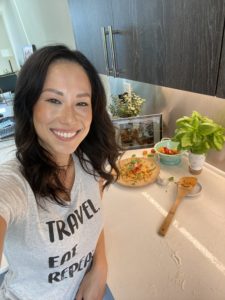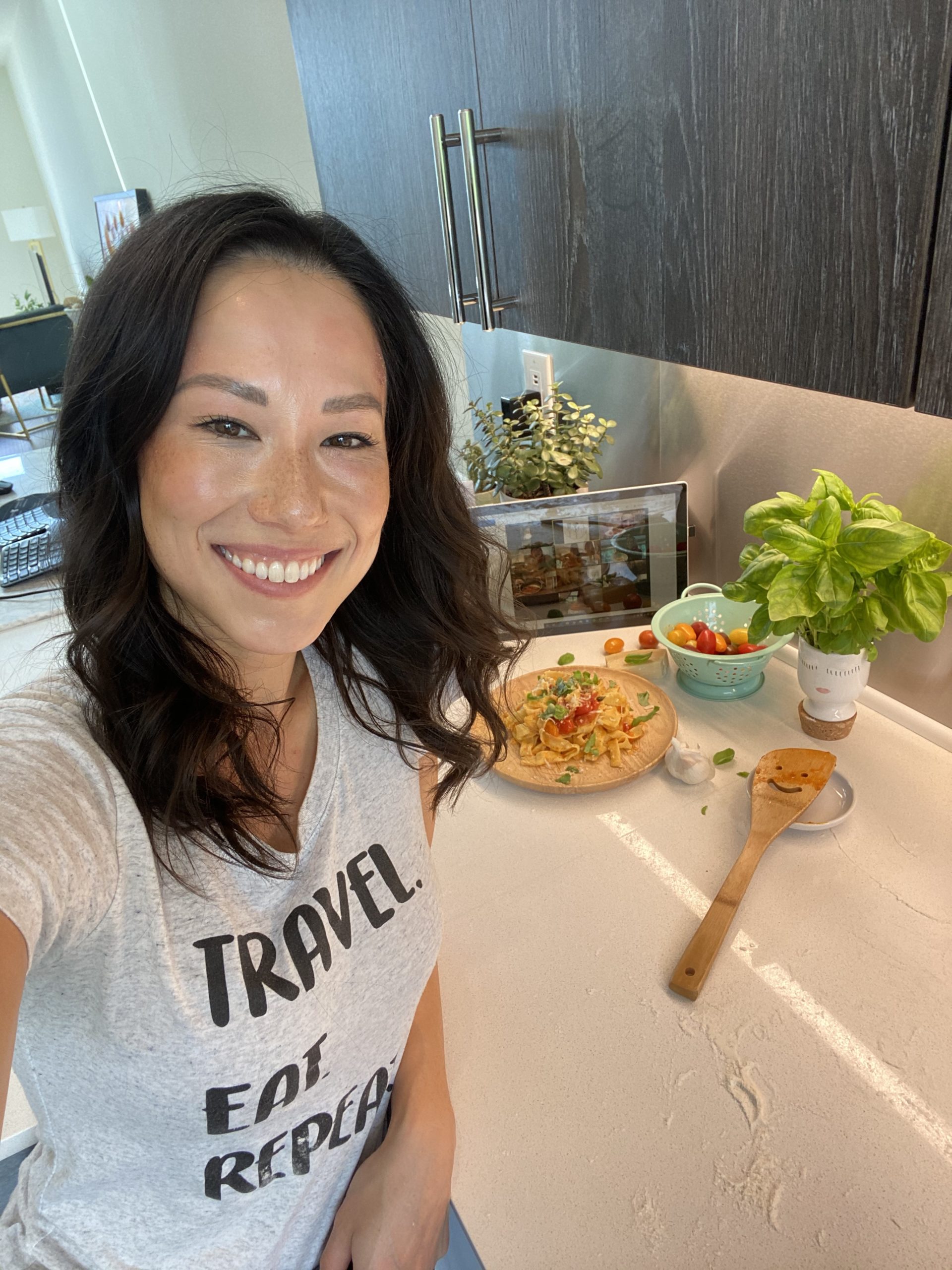 Annie Cheng is active in the Seattle chapter of Entrepreneurs’ Organization (EO)’s Accelerator programme, which empowers entrepreneurs with the tools, community and accountability necessary to aggressively grow their businesses.
Annie Cheng is active in the Seattle chapter of Entrepreneurs’ Organization (EO)’s Accelerator programme, which empowers entrepreneurs with the tools, community and accountability necessary to aggressively grow their businesses.
We asked Cheng, founder of The Table Less Traveled, which organizes boutique, small-group international culinary tours, how she made a significant pivot to save her business. Her pivot was recently listed in New York Magazine among industry favorites including Gordon Ramsay and Sur La Table. Here’s what she shared.
What made you start your company?
It was an evolution of experiences. Many of my relatives were small business owners. From a young age, I was exposed to the value of creating something, and the hard work and challenges it took to succeed. After multiple career changes, I came to a point where I felt that others could derive value from what had shaped my life: meaningful interactions and building relationships while traveling. I wanted to share those relationships and experiences with others.
Why did you join EO Accelerator?
I had experienced through others, and then for myself, how lonely entrepreneurship can be. Not only did I want resources that mimic a “real-life business school” to help me learn where and how I could improve as a leader and business owner, but also I wanted a peer group who could empathize with my struggles and challenge me to grow daily.
How did the pandemic disrupt your company, and what pivot did you make in response?
The Table Less Traveled operated international, boutique tours emphasizing building local relationships through food experiences. We dined in local homes, visited family-owned farms, and learned how various artisan and organic products are produced in Italy, Peru, Malaysia and Japan.
The pandemic completely halted our industry. We were in a growth year in 2020, with the most trips we had ever sold, excited about the new travelers we would meet. Our revenue stopped. Requests for refunds came pouring in. And, as many other companies experienced, overhead expenses did not magically disappear.
Because of the early impact on the travel industry, I was eager to find a way to continue providing some service that would align with our mission. Now, more than a year into the pandemic, virtual experiences have exploded. But in early March 2020, they were not yet common.
When I thought about what clients said was most valuable about our trips, it centered around relationships. I wanted to recreate our in-depth, interactive, immersive experiences in a virtual capacity, with food as the string that ties those connections together.
On March 18, 2020 we launched our first virtual, interactive cooking class with my friend, Alain, who lives in Pistoia, Italy. We normally walk around the Sant’Ambrogio market with him, picking up tomatoes and onions for his delicious sauce. But on that day, we came together on Zoom and taught four friendly faces how to roll their own fresh pasta in the safety of their home kitchens.
Our classes gained quick popularity as peoples’ lives were disrupted and routines turned upside down. Learn to make pizza at noon on a Wednesday? Sure! Grab the kids (who aren’t in school anyway)! But as families returned to a “new normal” and summer breaks kicked in, our public classes saw a downturn in participation.
Simultaneously, we received more and more requests streaming in from folks who had taken our public classes, saying they’d love to take a class with their team from work. We set up private classes and have since found much joy in bringing together remote teams to try something new and fun, all while getting an hour-and-a-half opportunity to “travel” somewhere around the world and escape their home mentally for just a bit.
What challenges did you overcome in making that pivot?
So many! Where to begin? For me personally, it took a lot of mindset shifts. First, the popularity of our classes grew rapidly enough that our small team couldn’t handle it all. We hired contractors to host classes, support administration, and create an e-commerce website. I had to learn to let go of a lot of control. I wanted every experience to be seamless and perfect. But reinventing your entire business in a month–with no certainty of demand from a new audience–requires a tolerance for learning as you go. We adopted an iterative process, trying ideas with small investments to learn what worked and what didn’t. We grew and evolved.
Were Accelerator Learning Days of value in this process?
Right before this transition I attended Accelerator’s “People Day.” The company’s first core value has always been “We are people people”. It’s the center of our company. We are human, our business is built around human connection, building relationships, sharing experiences, stories, moments of celebration, and supporting each other in moments of tragedy.
People were always the core of the business but I hadn’t always known how to articulate it and thread it through our culture. Accelerator taught me the importance of building that core value into a part of who we are from the inside out. It starts with me, our team, our partners, our participants and travelers.
Accelerator gave me the tools to make hard decisions based upon that core value of people. Our job interviews are centered around whether a candidate aligns with our culture, and our team evaluates potential new partners around whether they are people-focused first. In times of hardship, our financial decisions are not prioritized by profit.
What’s next for your company?
We’re expanding our services for end-to-end experiences with recipe kits for private events, partnerships with small businesses in the wine and spirits industries, and iterating on ideas for safe, engaging, travel which we hope to launch by the summer–both for small groups and independent travelers.
We are eager to return to travel, see our friends in person again, and introduce new travelers to the unique experiences we’ve created with individuals around the world!
For more insights and inspiration from today’s leading entrepreneurs, check out EO on Inc. and more articles from the EO blog.
Categories: BUSINESS GROWTH Entrepreneurial Journey OPERATIONS STRATEGY WOMEN ENTREPRENEURS

